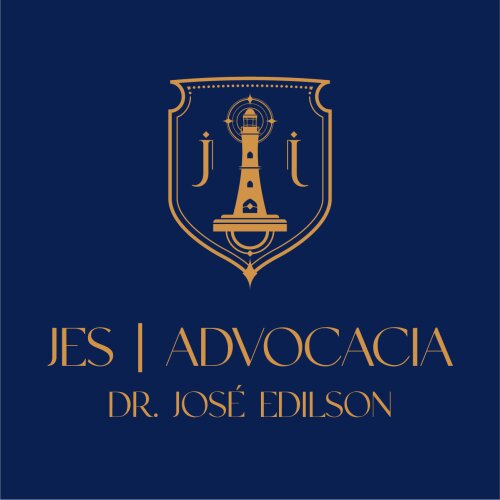Best Father's Rights Lawyers in Santo Andre
Share your needs with us, get contacted by law firms.
Free. Takes 2 min.
Free Guide to Hiring a Family Lawyer
List of the best lawyers in Santo Andre, Brazil
About Father's Rights Law in Santo Andre, Brazil
Father's Rights refer to the legal rights and responsibilities that fathers have concerning their children. In Santo Andre, Brazil, Father's Rights are recognized and protected under both federal Brazilian law and local regulations. These rights cover aspects such as child custody, visitation, financial support, parental authority, and participation in important decisions about a child’s upbringing. With changing societal views on parental involvement, the legal system increasingly acknowledges the importance of both parents in a child's development, reinforcing the need for fathers to have equitable rights and responsibilities.
Why You May Need a Lawyer
Many fathers encounter complex legal situations that require professional assistance to ensure their rights are protected. Common reasons for seeking legal help include disputes over child custody or visitation schedules, disagreements over child support payments, cases where a father wants to establish paternity, situations involving parental alienation, and efforts to modify existing court orders. A lawyer specializing in family law can provide guidance, represent your interests in court, and help navigate the local legal procedures, ensuring that your case is handled fairly and lawfully.
Local Laws Overview
In Santo Andre, as in the rest of Brazil, family law matters are governed primarily by the Brazilian Civil Code and the Statute of Children and Adolescents (ECA). Local family courts, known as Vara da Família, handle matters pertaining to Father's Rights. Key aspects specific to Father's Rights include:
- Joint and Sole Custody: Courts favor arrangements that serve the best interests of the child, which often means encouraging shared parental responsibility.
- Paternity Recognition: Fathers can seek legal acknowledgment of paternity, granting them rights and obligations regarding their child.
- Child Support: Both parents must contribute financially to their child's upbringing, and courts decide the extent of the father’s obligation based on circumstances.
- Visitation Rights: Fathers are generally entitled to regular visitation, unless there is a justified reason to restrict contact for the child's safety.
- Protection Against Parental Alienation: The law recognizes and seeks to prevent actions by one parent that unjustifiably disrupt the child’s relationship with the other parent.
Knowing these local legal principles can help fathers better understand their rights and options.
Frequently Asked Questions
What legal rights does a father have in Santo Andre?
Fathers have the right to participate in their child's life, including custody, visitation, and involvement in major decisions, unless restricted by law.
Can an unmarried father claim custody or visitation rights?
Yes, unmarried fathers can claim these rights once paternity is legally recognized, either voluntarily or through court proceedings.
How is paternity established in Santo Andre?
Paternity can be established voluntarily in the civil registry or through a judicial process, often involving DNA testing if there is a dispute.
What if the mother does not allow visitation?
A father can file a petition in the local family court to request or enforce visitation rights. Courts usually favor maintaining the child's relationship with both parents.
Can fathers seek custody of their children?
Yes, fathers can and do obtain custody if the court finds it serves the best interests of the child. Both parents have equal rights to seek custody.
How is child support calculated?
Child support is determined based on the needs of the child and the financial capabilities of both parents. Courts review income, expenses, and other relevant factors.
What is parental alienation and how is it addressed?
Parental alienation occurs when one parent hinders or damages the relationship between the child and the other parent. Courts can sanction the offending parent and alter custody if necessary.
Is court representation necessary for all Father's Rights disputes?
While some issues can be resolved amicably, legal disputes involving custody, support, or rights enforcement often require legal representation for the best outcome.
Can a father's rights be terminated?
A father's rights may only be terminated in serious cases such as abuse, neglect, or abandonment, and always through a judicial decision safeguarding the child’s well-being.
What role does mediation play in resolving disputes?
Mediation is widely encouraged as a way for parents to reach amicable agreements regarding custody, support, and other issues before resorting to litigation.
Additional Resources
If you need further information or assistance, the following resources may be helpful:
- Vara da Família de Santo Andre: Local family court specializing in family law matters.
- Defensoria Pública do Estado de São Paulo: Provides free or low-cost legal assistance to those eligible.
- Conselho Tutelar de Santo Andre: Municipal body dedicated to child protection issues and rights enforcement.
- Associação de Pais e Mães Separados (APASE): Organization supporting separated parents regarding custody and visitation matters.
- OAB Santo Andre: Local chapter of the Brazilian Bar Association, which can refer certified family law attorneys.
Next Steps
If you require legal assistance with Father's Rights in Santo Andre, begin by gathering all relevant documentation, such as birth certificates, previous court orders, and any correspondence related to custody or support. Schedule a consultation with a family law attorney who can analyze your case and recommend an appropriate course of action. You may also visit the local family court or public defender’s office to understand your options and file any necessary petitions. Acting promptly and seeking qualified legal guidance is essential to protect your rights and your child’s best interests.
Lawzana helps you find the best lawyers and law firms in Santo Andre through a curated and pre-screened list of qualified legal professionals. Our platform offers rankings and detailed profiles of attorneys and law firms, allowing you to compare based on practice areas, including Father's Rights, experience, and client feedback.
Each profile includes a description of the firm's areas of practice, client reviews, team members and partners, year of establishment, spoken languages, office locations, contact information, social media presence, and any published articles or resources. Most firms on our platform speak English and are experienced in both local and international legal matters.
Get a quote from top-rated law firms in Santo Andre, Brazil — quickly, securely, and without unnecessary hassle.
Disclaimer:
The information provided on this page is for general informational purposes only and does not constitute legal advice. While we strive to ensure the accuracy and relevance of the content, legal information may change over time, and interpretations of the law can vary. You should always consult with a qualified legal professional for advice specific to your situation.
We disclaim all liability for actions taken or not taken based on the content of this page. If you believe any information is incorrect or outdated, please contact us, and we will review and update it where appropriate.














